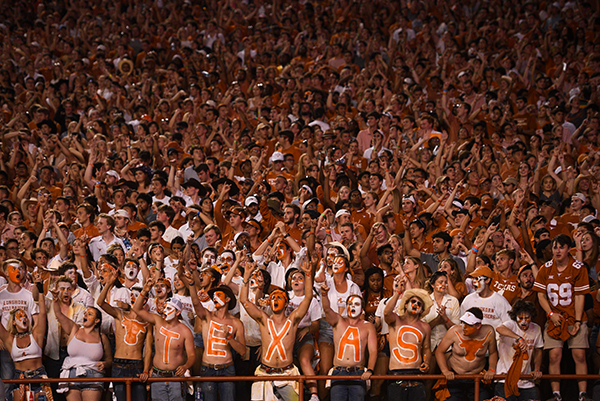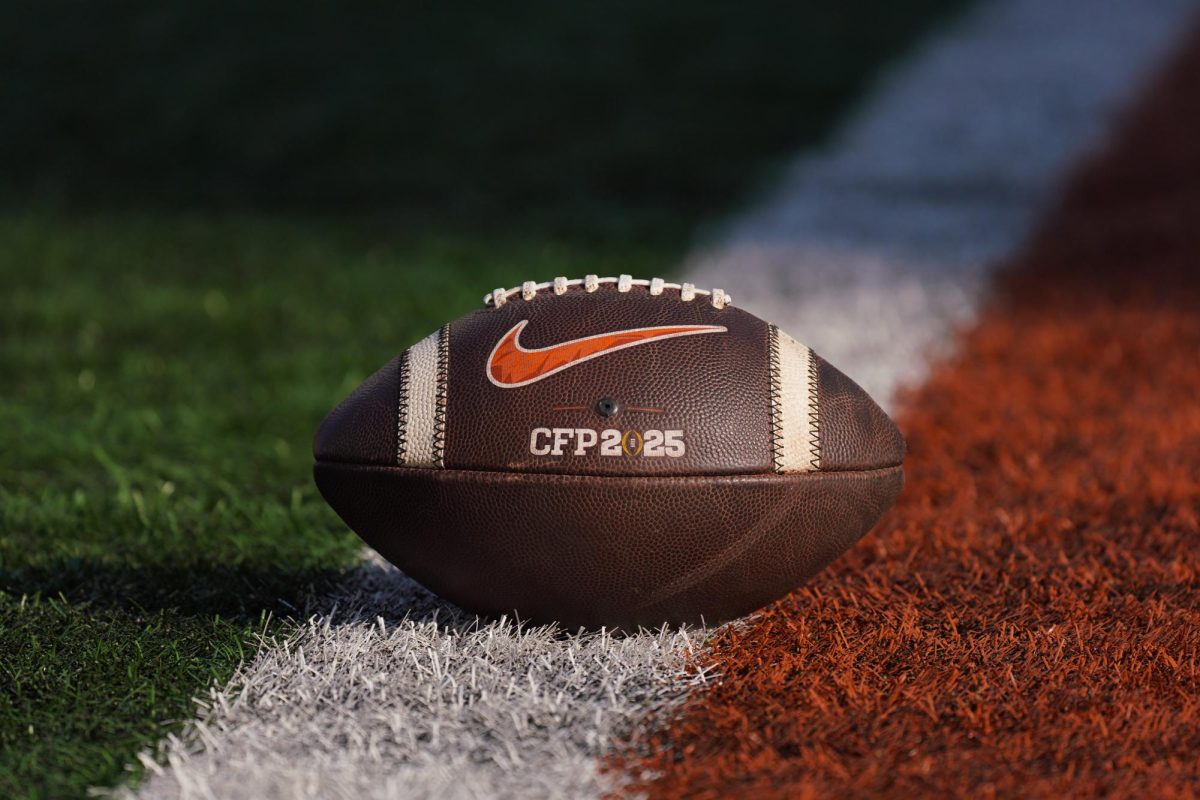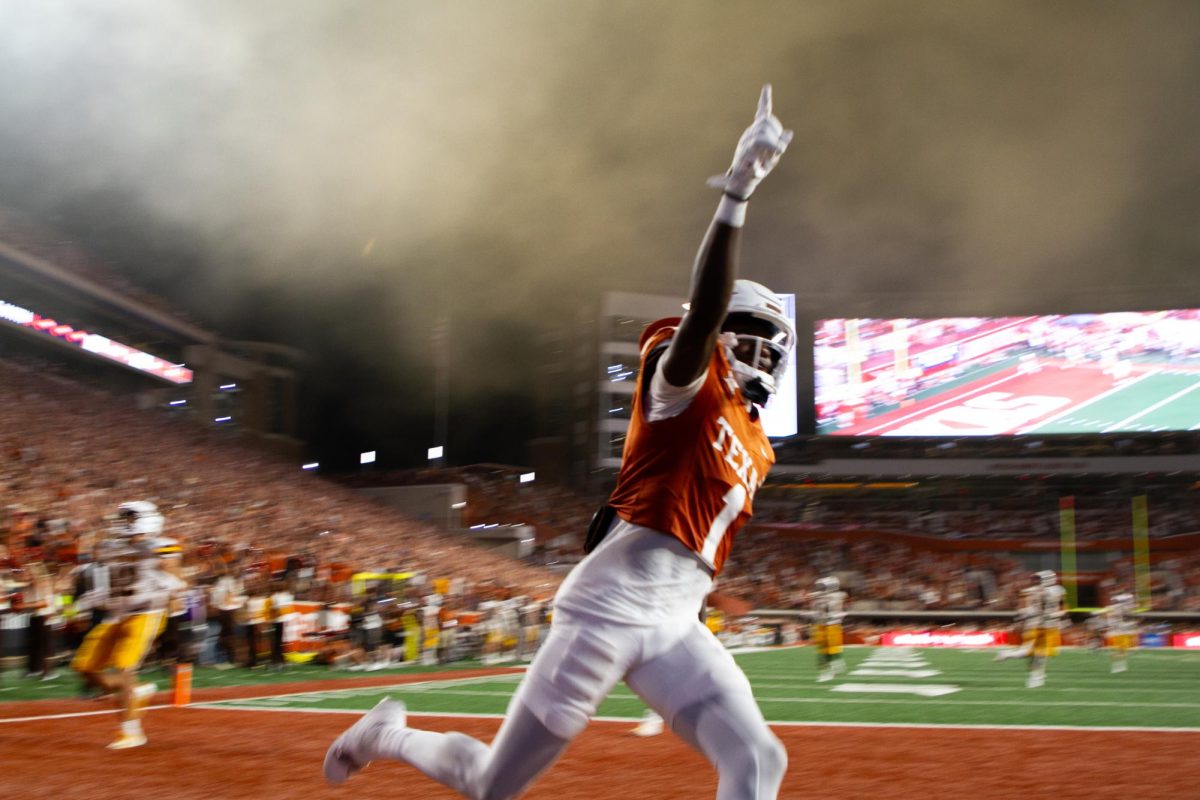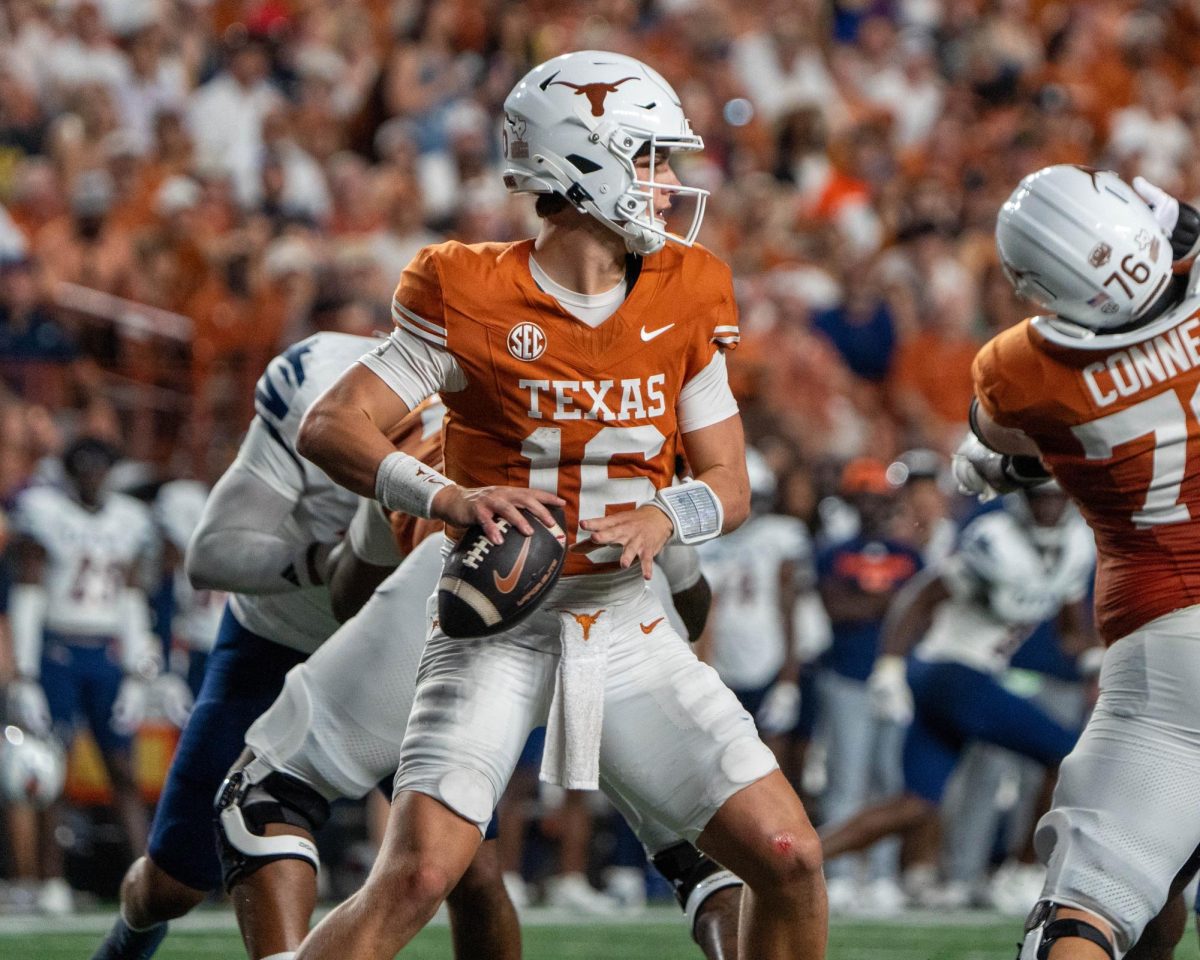James Miller loves Texas football, but the 2007 UT alumnus said he’ll listen to medical experts rather than his heart when weighing whether or not to attend Longhorn football games this fall.
“What I don’t want is for us to be doing all of these things because we want them to happen, because we love football,” Miller said.
As COVID-19 plagues Texas, top Austin officials say it's best for UT fans to watch games from home this football season. Sporting events are potential grounds for “superemitters,” defined by the Centers for Disease Control as individuals who release more particles than others and may contribute to “superspreader” events.
Mass gatherings were the first to shut down during the onslaught of the pandemic and should be the last to reopen, said Dr. Mark Escott, Austin-Travis County Interim Health Authority.
“When we look at the current rate of transmission in Travis County, if DKR-Texas Memorial Stadium plans to open to 25,000 fans on September 5 and we have a similar rate of transmission, we can expect more than 100 of those individuals to be COVID positive,” Escott said in an email. “From there it multiplies to hundreds of people and then thousands of people infected.”
Escott said the tight walkways inside Darrell K Royal-Texas Memorial Stadium won’t be safe, and that lines at concessions and crowds waiting to enter the stadium will put those in attendance at risk. Preventative measures such as masking and practicing personal hygiene are beneficial, Escott said, but socially distanced or not, people won’t be much safer once seated in the stadium.
“People will be yelling at the game, which means they are projecting their voice and increasing the spread,” Escott said. “Yes, many football stadiums are outdoors, which may help mitigate that risk, but there will need to be a lot of engineering controls built to ensure that we can do that safely.”
In a video statement Monday, Texas Athletics announced new safety measures to address such risks. Fans will sport masks or face coverings to meet Texas’ requirements, and all staff will be screened prior to game day. Additionally, Texas will install 3,000 hand sanitizing dispensers and remove all moveable food, condiment and merchandise kiosks.
However, the University continues to flirt with a 25% stadium capacity limit.
“To me, it sounds like we’re trying to retain as much of football as we can, but in doing so we’re compromising the very thing that we shouldn’t be compromising on,” Miller said.
Texas Athletics Director Chris Del Conte initially had other ideas, writing in a July 20 email sent to season ticket holders that he planned to operate under a 50% limit, which would enable all season ticket holders to retain their seats. On Friday, UT announced that students who purchase The Big Ticket will receive access to all 2020 home football games and can sit in groups no larger than 10.
Austin Mayor Steve Adler said both proposed attendance options are unsafe, regardless.
“My understanding is that they’re considering football, and I hope it doesn’t happen,” Adler told CBS Austin on Thursday. “I’m not aware of anywhere in the world right now where they’re putting crowds of 25,000 people.”
If the goal is to have a football season, the emphasis should be on safely fielding two teams each weekend and not seating fans, Escott said.
Miller said he’d be content watching Texas play on TV, but he hopes the University can reach a consensus with city officials to ensure everyone’s safety.
“The University of Texas is usually used to making decisions for itself, but the city is saying ‘No, you’re a part of our community as well, and we will defend the interest of the community if we must,’” Miller said.





















